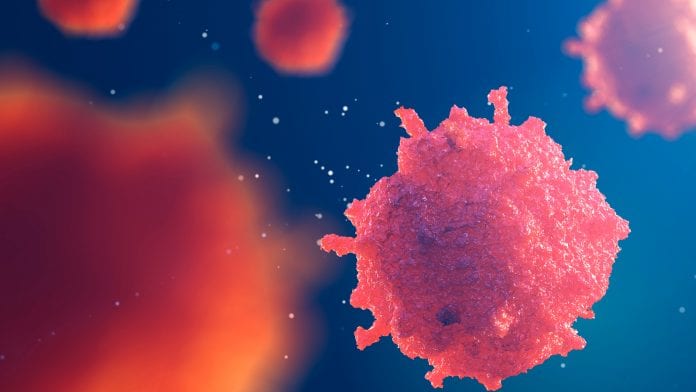
New research has uncovered clues to COVID-19 immunity by looking at how T cells respond to the virus.
A team of researchers from La Jolla Institute for Immunology (LJI), The University of Liverpool, and the University of Southampton, suggests that people with severe COVID-19 cases may be left with more of the protective “memory” T cells needed to fight reinfection.
The research, published in Science Immunology, is the first to describe the T cells that fight coronavirus in detail.
T cells and COVID-19
Scientists at LJI have investigated which antibodies and T cells are important for fighting the coronavirus since the start of the COVID-19 pandemic. As experts in genomics, Professors Vijayanand and Ottensmeier have used sequencing tools to uncover which T cell subsets may control disease severity. For this study, they used a technique called ‘single-cell transcriptomics analysis’ to study the expression of individual genes of more than 80,000 CD8+ T cells isolated from both COVID-19 patients and non-exposed donors.
The team studied CD8+ T cells from 39 COVID-19 patients and 10 subjects who had never been exposed to the virus, and found that of the COVID-19 patients, 17 patients had a milder case that did not require hospitalisation, 13 had been hospitalised, and nine had needed additional ICU support.
They discovered weaker CD8+ T cell responses in patients with milder COVID-19 cases and the strongest CD8+ T cell responses in the severely ill patients who required hospitalisation or ICU support.
Study co-leader LJI Professor Pandurangan Vijayanand, said: “The data from this study suggest people with severe COVID-19 cases may have stronger long-term immunity.”
“This study highlights the enormous variability in how human beings react to a viral challenge,” added co-leader Christian H Ottensmeier, M.D., Ph.D., FRCP, a professor at the University of Liverpool and adjunct professor at LJI. “There is an inverse link between how poorly T cells work and how bad the infection is. I think that was quite unexpected.”
T cell exhaustion
CD8+ T cells in the milder cases showed the molecular signs of a phenomenon called T cell “exhaustion” whereby cells receive so much immune system stimulation during a viral attack that they are less effective in doing their jobs, and the researchers say it is worth studying whether T cell exhaustion in the mild COVID-19 cases may hinder a person’s ability to build long-term immunity.
The new study provides a valuable window into CD8+ T cell responses, but it is limited because it relies on the CD8+ T cells found in blood samples. As a next step, the researchers hope to shed light on how T cells in tissues hit hardest by SARS-CoV-2, such as the lungs, react to the virus. This step will be important because the memory T cells that provide long-term immunity need to live in the tissues.









